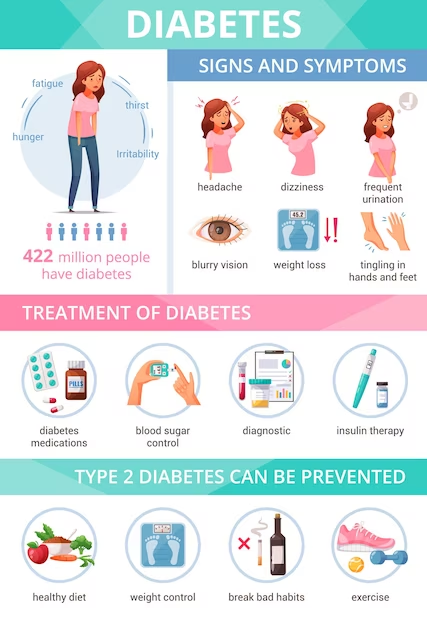HOW KETO DIET IS BEST FOR GUT HEALTH?
Obesity is a medical condition that occurs when excess body fat
accumulates to the extent that it may impair health. While it is primarily
associated with weight gain, it is not simply an aesthetic concern. Obesity is
linked to a wide range of negative health outcomes that can have a significant
impact on an individual's quality of life.
One of the most significant risks associated with obesity is an increased likelihood of developing chronic conditions such as heart disease, diabetes, and stroke.
Obesity is linked to the buildup of cholesterol in the bloodstream, leading to the narrowing and hardening of blood vessels. This condition, known as atherosclerosis, increases the risk of heart disease and stroke. Obesity can also contribute to the development of type 2 diabetes, a disease in which the body is unable to use insulin properly, leading to high blood sugar levels. Long-term high blood sugar levels can damage organs such as the eyes, kidneys, and nerves, leading to complications such as blindness, kidney failure, and neuropathy.
A ketogenic diet is a dietary approach that involves consuming minimal carbohydrates, which prompts the liver to produce ketones, chemicals that convert fat into energy. Due to the scarcity of carbohydrates, the body cannot derive energy from glucose or sugar and resorts to burning fat instead, leading to a state of ketosis. While originally developed as a therapy for epilepsy, the keto diet has recently gained popularity as a potential treatment for obesity and metabolic disorders, according to Dr Ligresti.
The effects of the
keto diet on gut health are disputed, with some studies suggesting that it may
alleviate irritable bowel syndrome by limiting the consumption of FODMAPS,
types of sugar that certain individuals have trouble digesting. However,
caution is necessary since the keto diet restricts the intake of fibre-rich foods, which are essential for proper digestion. Trillions of microorganisms or bacteria residing in our
intestines and throughout our bodies form the gut microbiome. Although this
might appear unappealing, it plays a crucial role in our overall health and
susceptibility to severe medical conditions such as heart disease, diabetes,
stroke, irritable bowel syndrome, and cancer. Various factors, such as dietary
habits, lifestyle, environment, and stress, shape the gut microbiome. Given
that a nutritious diet is fundamental to a healthy gut, what diet is the most
beneficial? Dr Rosario Ligresti, Chief of Gastroenterology at Hackensack
University Medical Center, evaluates the latest dietary trends and assesses
their safety and efficacy in promoting gut health.
INTERMITTENT FASTING
Intermittent fasting is an eating pattern that involves refraining from food consumption for a specified period, allowing the body to utilize energy more efficiently. Instead of relying on energy from carbohydrates, fats are broken down. According to Dr Ligresti, "Giving your digestive system a break by limiting eating to a specific period each day can aid in shedding excess weight, controlling blood sugar levels, and decreasing inflammation." Although there isn't sufficient research to confirm if intermittent fasting is beneficial for gut health, avoiding food intake for a few hours before bedtime can enhance sleep quality and prevent heartburn and indigestion.
The Mediterranean diet is characterized by the consumption of vegetables, fruits, whole grains, potatoes, legumes, nuts, and seeds, as well as moderate amounts of dairy, eggs, fish, and poultry. It emphasizes olive oil as a primary source of fat and restricts red meat, added sugars, highly processed foods, refined carbohydrates, and saturated fats.
Dr Ligresti considers the Mediterranean diet to be superior due to its high fibre content and encouragement of consuming a wide range of nutrient-dense foods.
It is less restrictive about food choices, making it
easier for most people to adhere to. Additionally, research indicates that a
Mediterranean diet can modify the gut microbiota of obese individuals by
elevating beneficial bacteria that offer protection against inflammation and
illness. Therefore, the Mediterranean diet receives an A+ grade. A vegan diet is a plant-based eating plan
that excludes meat and animal-derived products and is believed to aid weight
loss.
Dr Ligresti acknowledges that, like the Mediterranean diet, a vegan diet promotes nutrient-dense foods and is high in fibre, which is beneficial for gut health.
However, a vegan diet has more restrictions on the types of foods that can be consumed, necessitating more careful planning to ensure that the body receives all of the essential nutrients to maintain good health. Therefore, a vegan diet receives an A grade.
If you are concerned about your gut health, consulting with a doctor or
nutrition coach can assist you in identifying adjustments that may enhance your
diet and overall well-being.
One of the most significant risks associated with obesity is an increased likelihood of developing chronic conditions such as heart disease, diabetes, and stroke. Obesity is linked to the buildup of cholesterol in the bloodstream, leading to the narrowing and hardening of blood vessels.
This condition, known as atherosclerosis, increases the risk of heart disease and stroke. Obesity can also contribute to the development of type 2 diabetes, a disease in which the body is unable to use insulin properly, leading to high blood sugar levels. Long-term high blood sugar levels can damage organs such as the eyes, kidneys, and nerves, leading to complications such as blindness, kidney failure, and neuropathy.
Finally, obesity can reduce an individual's life expectancy, as the
associated health risks increase the likelihood of premature death. This can
have a profound impact on family and loved ones, leading to emotional distress
and financial strain.
In conclusion, the negative impacts of obesity cannot be overstated. It is a complex condition with a range of physical and mental health implications that can significantly reduce an individual's quality of life and increase the risk of chronic diseases and premature death. The good news is that obesity can be prevented and treated through a combination of healthy eating, regular exercise, and medical interventions such as medication or surgery.
Therefore,
it is essential to prioritize maintaining a healthy weight to prevent the
harmful effects of obesity.













Comments
Post a Comment